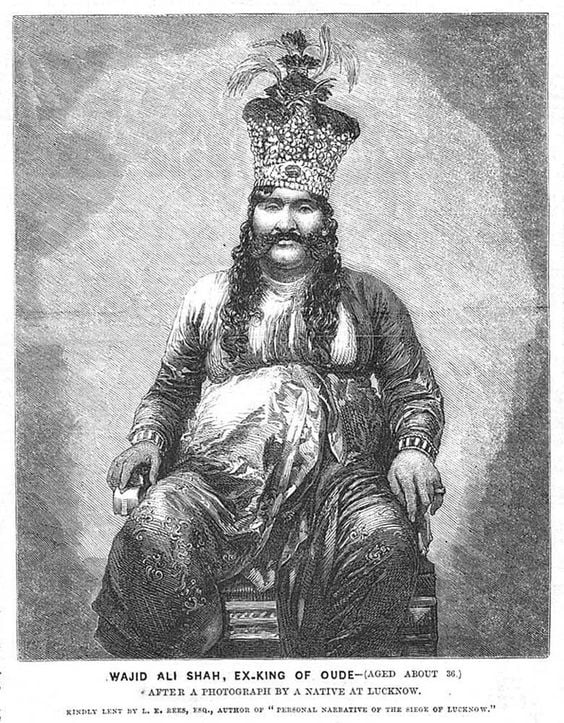HOW MUSIC CAN BE NEXT TO SILENCE?
Real music is born out of a silent mind. Real music is meditation manifested. Your music is madness manifested.
Music is certainly next to silence.
There is a certain thing to be understood: Music does not consist, in the first place, of words, language. It consists of pure sounds, and it consists of pure sounds only to those who don’t know anything beyond sound. Those who know silence — for them, the whole gestalt changes.
You see my five fingers, but somebody can see the five gaps between my fingers.
Ordinarily you will not see the gaps, you will see five fingers. But the gaps are more real: fingers may come and go, gaps will remain.
Between sounds of music there are gaps of silence. The authentic music consists not of sounds, but of the gaps. Sounds come and go; those gaps remain. And music can make you aware of those gaps more beautifully than anything else; hence I have to say that music comes next to silence. But it is possible even the musician may not be aware of it, unless his music is his meditation too. Then, soon, the shift from sounds to silence.
The ancient Chinese story is that whenever a musician becomes perfect, he throws away his instruments; whenever a swordsman becomes perfect, he throws away his sword.
It is a very strange saying and goes back almost five thousand years, because it has been quoted by Lao Tzu as an ancient saying. What does it mean? Chuang Tzu was asked, “This seems to be a very strange kind of proverb. When the musician becomes perfect we should have thought that he would have purchased perfect musical instruments, and the saying says he throws away his instruments.”
When a musician starts shifting his attention from sounds to silence, his music becomes almost perfect; when he starts listening only to the silence and forgets all about sounds, his music is perfect. And to show the perfection he throws away his instruments; they are a kind of disturbance… the most beautiful disturbance in silence — but a disturbance is a disturbance.
Music comes next to silence, but the difference is very big. And it is not that all music necessarily comes close to it. In the name of music, contemporary idiots are doing something which goes even farther away from silence — It is not music; it is simply making noise! It is simply disturbing the silence.
In the East, music has been always accepted as a spiritual phenomenon. If your music cannot create silence in the people who are listening, it is not music. If your music does not become an unmoving no-mind in the people of your audience, it is not music. It is just making noise.
A musician works hard, because he has to bring something which is beyond words, but is not beyond music, which cannot be said but it can be played on a sitar. And it is tremendously relaxing, not only for the person who is playing – he completely forgets his ego; only then his music reaches to its ultimate height – but for those who hear it, they also forget their ego. They become simply a listening. There is no listener.
It happened in Lucknow, in the time of one of the very colorful kings of Lucknow, Nawab Wajid Ali Shah. He was really a very incomparable man. When the British armies were entering to capture Lucknow, he was listening to music. Somebody told him that the enemies had entered Lucknow, and he said, “Welcome them. They are guests, we are the host. Make places for them. We have so many palaces… make arrangements for them.”
The servant said, “But they have come to conquer.”
He said, “There is no problem. They can conquer, but first let them rest. What is the hurry? Conquering is not going to be a difficult problem because we are not going to fight. We are human beings, and it does not matter… if they enjoy ruling, they can rule.”
And he told the musicians, “Go on!”
He had gathered all the greatest musicians into his court, all the great dancers. His court was really rich, but he was always feeling a little sad that one musician who was perhaps the greatest in the country, had not come to his court. Again and again messengers were sent, but the musician said that it would create unnecessary trouble.
This was the kind of man who was interested in a musician in Varanasi. He was thought to be the greatest musician of those days, but his conditions were so strange that nobody would even invite him to play his music. Wajid Ali Shah invited him.
People tried to prevent him. Friends, courtiers, wives, everybody said, “What are you doing? That man is mad. He is a great musician, but he is certainly mad.”
He said, “It does not matter. If music cannot cure madness, then he is not a musician; and if music cannot create a divine madness, then too he is not a musician. Let him come.”
Finally, Wajid Ali Shah said, ”Whatever trouble it creates, I will take care of it, but you have to come.”
The musician came and said, “My condition is that while I am playing my Sitar nobody should move. If anybody moves his head, or anything, his head has to be cut immediately. All around the listeners swordsmen with naked swords should be standing watching, and if anybody moves — finish!. So you will have to promise me that anybody who moves his head and sways with my music, should have his head cut off immediately.”
Wazid Ali Shah was also a crazy man. He said, ”There is no difficulty.”
In Lucknow it was announced that you have to come knowing perfectly well that the king has accepted this condition. So only those should come who are capable of sitting silently, frozen. If your head is found moving or you sway – Wazid Ali Shah has put one thousand soldiers with naked swords around the audience – immediately your head will be gone.
Lucknow was one of the most juicy places in India in those days. It has still some remnants of that juice…. Knowing the conditions — because the conditions were also declared to the whole town — ten thousand people came to listen. Lucknow was, in those days, a capital of artists, musicians, poets, painters. Even Wajid Ali Shah was surprised. He was thinking that perhaps nobody would turn up. Even the musician could not believe that ten thousand people are ready to risk their life to listen to the music.
The musician started playing his Sitar. Everybody was holding himself tight, so that not even accidentally would be allow the head to move. They were sitting like statues. And then a moment came, a few people started swaying.
Wajid Ali Shah was immediately going to order those people’s heads to be cut . The musician said, ”Wait, until after the music is finished; but keep note who the people are.”
When the music ended in the middle of the night the officers had noted down almost two dozen people who had moved their head in appreciation, despite knowing the condition. Wajid Ali Shah said, “What do you say, should we behead them?”
The musician said, “No! Everybody now should be allowed to go, and I will sing for those twenty four — they are the real lovers. They moved their heads, they could not help it. They started swaying with the music, they became one with it. All the others were cowards, sitting like statues. These are the people who can understand me. I will play for them now. The others have no guts. These people – even though they tried hard to remain unmoving – when the real moment came, when the music reached its height, they forgot themselves, they forgot the condition, they forgot their life, they forgot everything. And the way they swayed was in tune with my music.”
”Just to sort them out I have made the condition. So now let the others go, and for these handful of people I will play my best. There is still half the night. And there is no condition. I can feel a kind of at-one-ment with these people. I can feel a certain synchronicity with these people. They know what the heights of music are, where ego disappears, mind stops, there is no thinking. Music in the East has been used as a meditation. ”And these people are capable of reaching to meditation through music.” And he played for them.
In the morning, Wajid Ali could not believe what was happening. It was as if people had completely forgotten who they were – just trees in the wind, swaying, dancing. Their faces had a luminosity. The place was full of a new kind of liveliness that Wajid Ali had never experienced. There was dance, there was joy, and there was something which can only be called spiritual.
Those twenty-four people who were retained, and everybody who was allowed to go. People were afraid, they thought — perhaps they would be murdered. But in the morning they found them coming back home. They said, “What happened?”
Those people said, “That musician knows how to find the right audience. The real music began when you had all left. He is certainly the greatest musician. We are feeling so pure and so fresh and so clean as we have never felt in our life. He has managed to initiate us into meditation.”
Music is certainly next to meditation. But not any music…which is ugly, which is sexual, which draws you lower rather than taking you upwards. It does not give you more consciousness, higher skies to fly in; it brings you down, back to deeper gutters.
Music can be understood only by those who have a musical ear. And those who have a musical ear should think themselves fortunate because beyond music, just one step more, they enter the world of meditation, silence.
Silence is the ultimate music.
Osho: The Great Pilgrimage: From Here to Here Chapter #18 Chapter title: The alphabet of rejoicing Q 2. (Excerpts)
Osho: From Death to Deathlessness: CHAPTER 40. YOUR MUSIC IS YOUR MADNESS Q 1. (Excerpts)
संगीत है शक्ति ईश्वर की, हर सुर में बसें हैं राम
रागी जो सुनाये राग मधुर, रोगी को मिले आराम l
Sangeet hai shakti Ishwar ki har sur me basein hain Ram,
Raagi jo sunaye raag madhur, rogi ko mile aaram.
Music is a divine power, every note is embedded with the Almighty
as the singer sings beautiful melodies, the sick person feels better.
I came across this interesting interview of the great Indian music composer Naushad Ali Saab. He narrated the story about how he and K. Asif could convince Bade Ghulam Ali Khan saab to sing a song “Prem Jogan Ban Ke” for Mughal-E-Azam…please enjoy the richness of Indian classical music. I am also pinning the song later.
Naushad Talks About Mughal e Azam Bade Ghulam Ali & K. Asif | FUNNY STORY!!! – YouTube


Osho’s blessings are always with you.
Thoughtful article as always. Presented a nice “Mehfil” of Bade Gulam Ali khan Saab. 👌
Very well written.👍👌
The article itself tmis taking us to feel the divine happiness and meditation! Great experience!
Remembered of a famous Marathi novel “Rarangdhang’. The narrator is a civil engineer posted in Himalaya ranges, who feels, “शांततेलाही आवाज असतो हे इथे जाणवलं!” Slilece too has a sound! Divine sound which you hear only in extreme silent moments of nature!
Awesome…
Rajiv very well written. Congrats on achieving your 100th blog. All the very best and look forward for more such inspiring thoughts. God bless you.👌👍
Excellent!!!